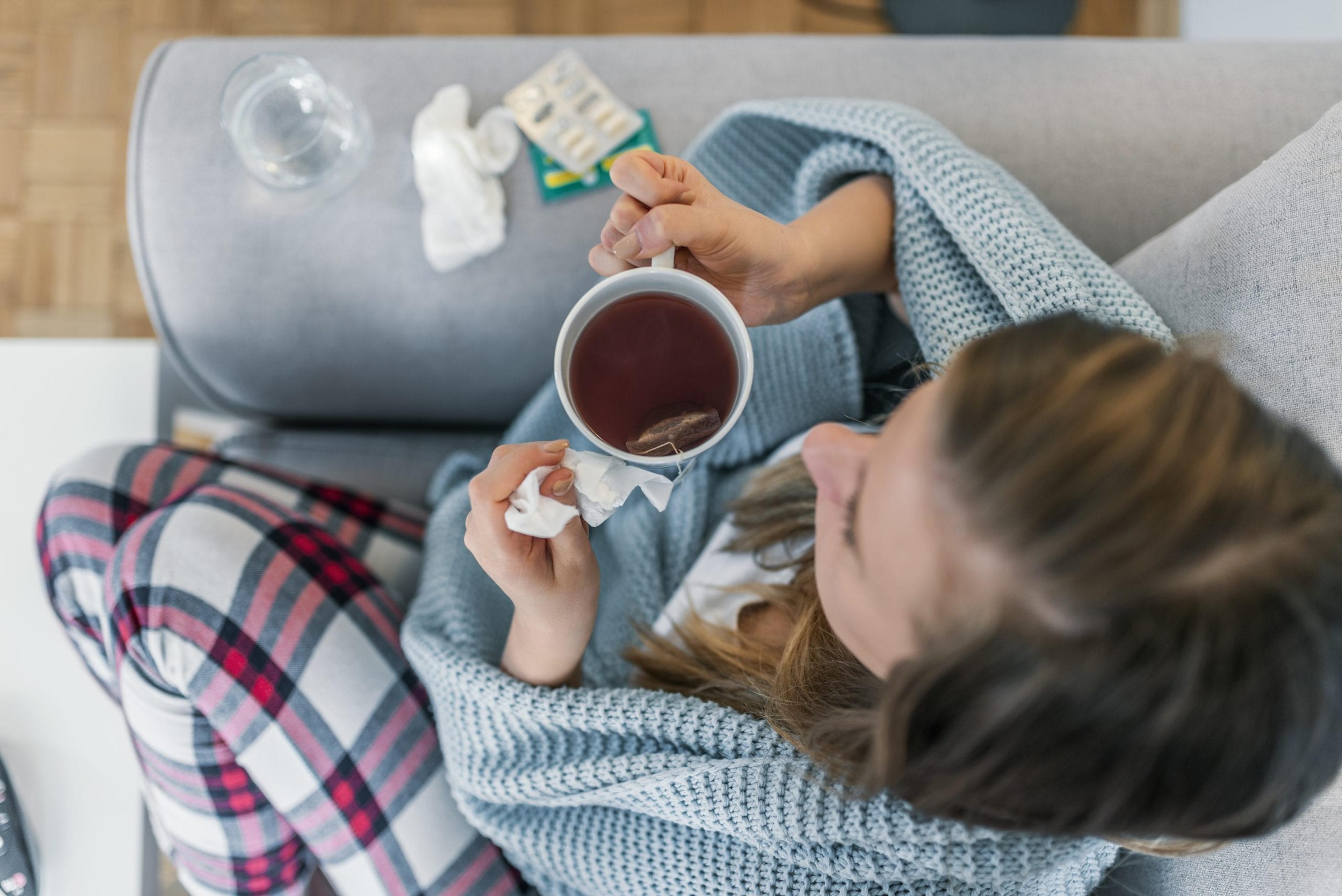COVID-19 Survivors Share Tips for Recovering at Home
Julie Bitely
| 4 min read

As one West Michigan family learned, it only takes one instance of letting your guard down to come face-to-face with COVID-19. Earlier this fall, Brian Norton met with five friends to attend a meeting. When a friend with a van offered to drive everyone, it seemed like a good idea. He knew everyone he was riding with and thought ‘These are really good friends, they are rarely sick and ‘look’ healthy,’ and didn’t put on the mask he brought with him. Norton sat in the passenger seat during the 20-minute drive to and from the meeting. Unbeknownst to anyone, the driver was carrying COVID-19, although he was unaware and asymptomatic at the time. Everyone in the van contracted COVID-19, experiencing varying symptoms. Norton brought the virus home to his wife, Kellie, who then spread it to the couple’s son and grandson. Up until the point he was exposed on the drive, Brian Norton wore a mask at work every day as an essential employee and remained healthy. “As much as you think you’re invincible, you’re not,” said Kellie Norton in retrospect.
Battling the virus at home

After the exposure, the couple both started experiencing symptoms. Body aches, fatigue, severe coughs and loss of appetite were the most notable. Kellie Norton’s symptoms weren’t as severe, and she was able to care for herself and her husband as they recovered. Thankfully, emergency care at the hospital wasn’t needed, but the couple felt overwhelmed when it came to managing symptoms at home. Because of a high number of cases where they live in West Michigan at the time, they’d be on hold for long periods of time waiting to talk to a nurse when they had questions. “I think the ‘not knowing’ how bad and how long our illness would be was the hardest part,” Kellie Norton said. After reflecting on the experience, the couple has tips for those recovering from COVID-19 at home so that they might feel more empowered as they recover. These include:
- Contact your primary care physician and ask questions. Many people diagnosed with COVID-19 are getting tested at community sites. Making sure your primary care physician is in the loop on your diagnosis can help streamline care. The couple felt much better once they connected with their doctor, who helped answer questions they had.
- Keep track of over-the-counter medicines. Because of extreme fatigue, it was hard to keep track of when painkillers had last been taken. The pair started writing down a schedule for when the next dose was needed and then checked it off so there was no confusion. The couple was also initially unsure of what they could take. The World Health Organization reversed earlier recommendations to avoid ibuprofen, and the Centers for Disease Control and Prevention recommends talking to your doctor about which over-the-counter medicines could help in managing symptoms.
- Write it down. In addition to tracking medications, it was also helpful to keep a list of questions related to symptoms and pain management. Note any changes in symptoms and when they take place and finally, take good notes to refer to whenever you have a discussion with your doctor or other health care providers.
For at-home recovery, the CDC also recommends getting a lot of rest and fluids. If possible, try to stay in one room and use a separate bathroom if there are other people in the household. Seek emergency medical attention for any of these symptoms:
- Trouble breathing
- Persistent pain or pressure in the chest
- New confusion
- Inability to wake or stay awake
- Bluish lips or face
Additional guidance for recovering at home or caring for someone who is sick can be found here.
Lessons learned
Kellie Norton is thankful that she and her husband were able to battle COVID-19 at home. She knows it could have been much worse, with Michigan’s confirmed case count and deaths continuing to rise. “God helped us both get through our COVID-19 illness,” she said, urging everyone to mask up and socially distance, avoiding close contact. Related:
Photo credit: ljubaphoto





